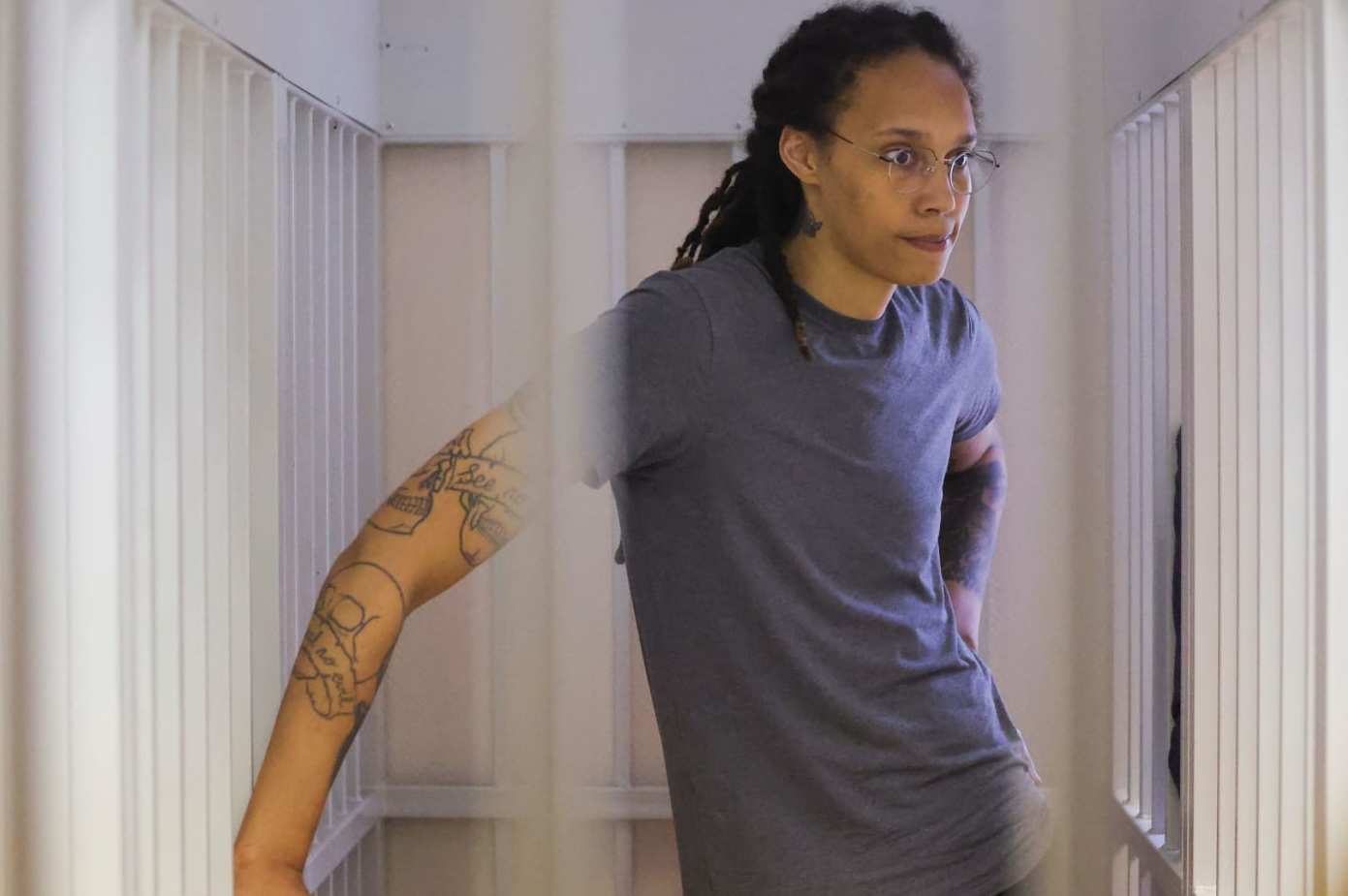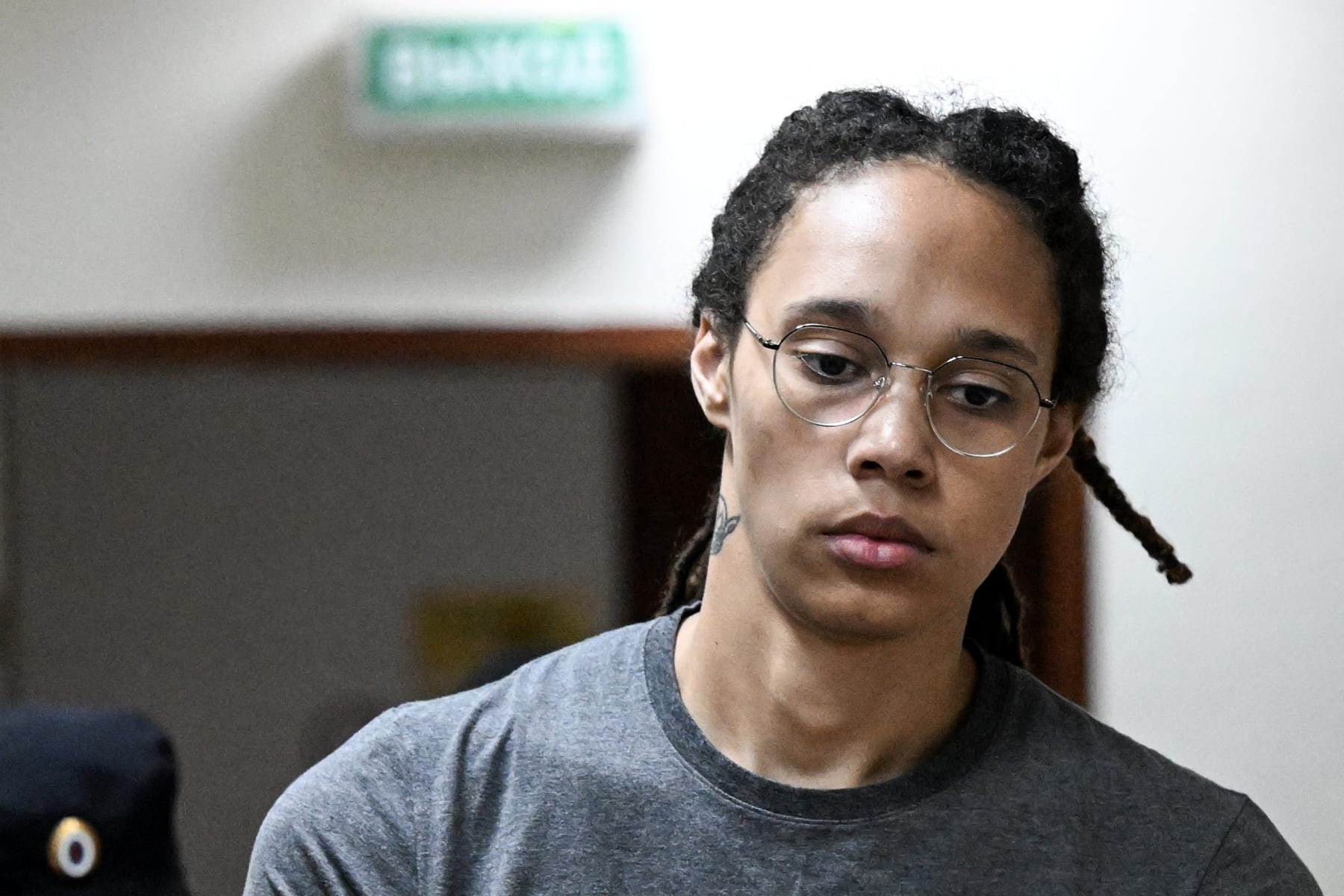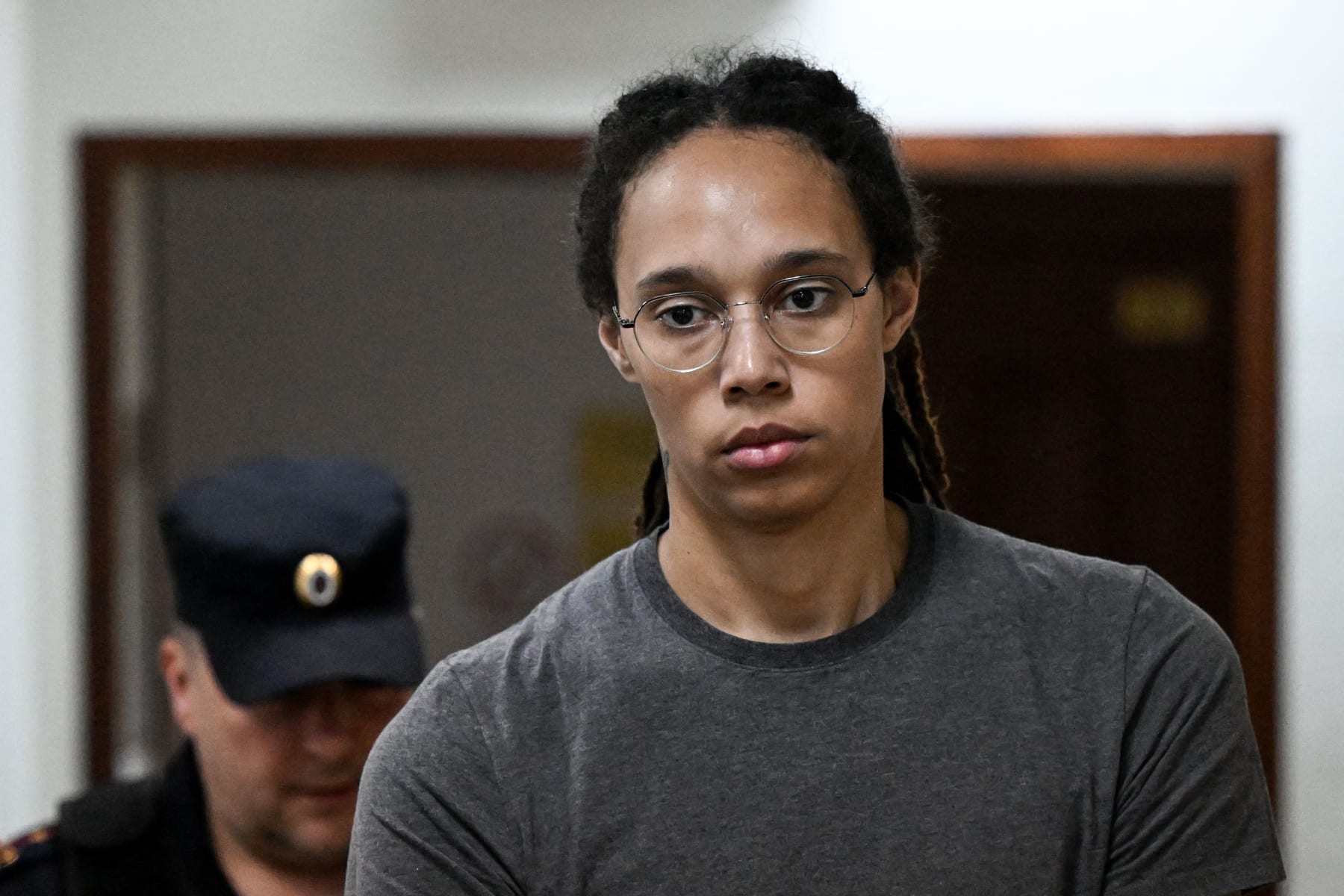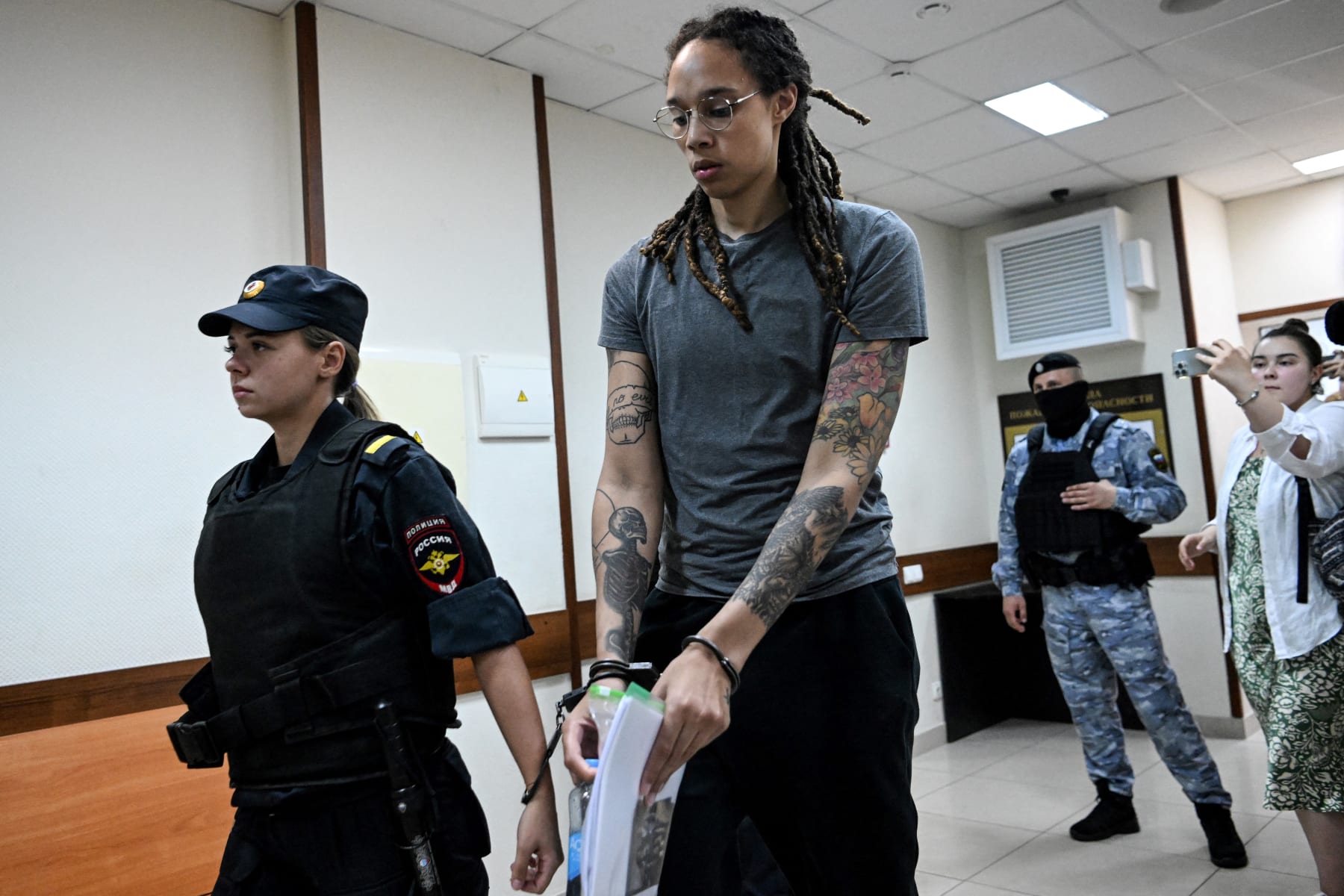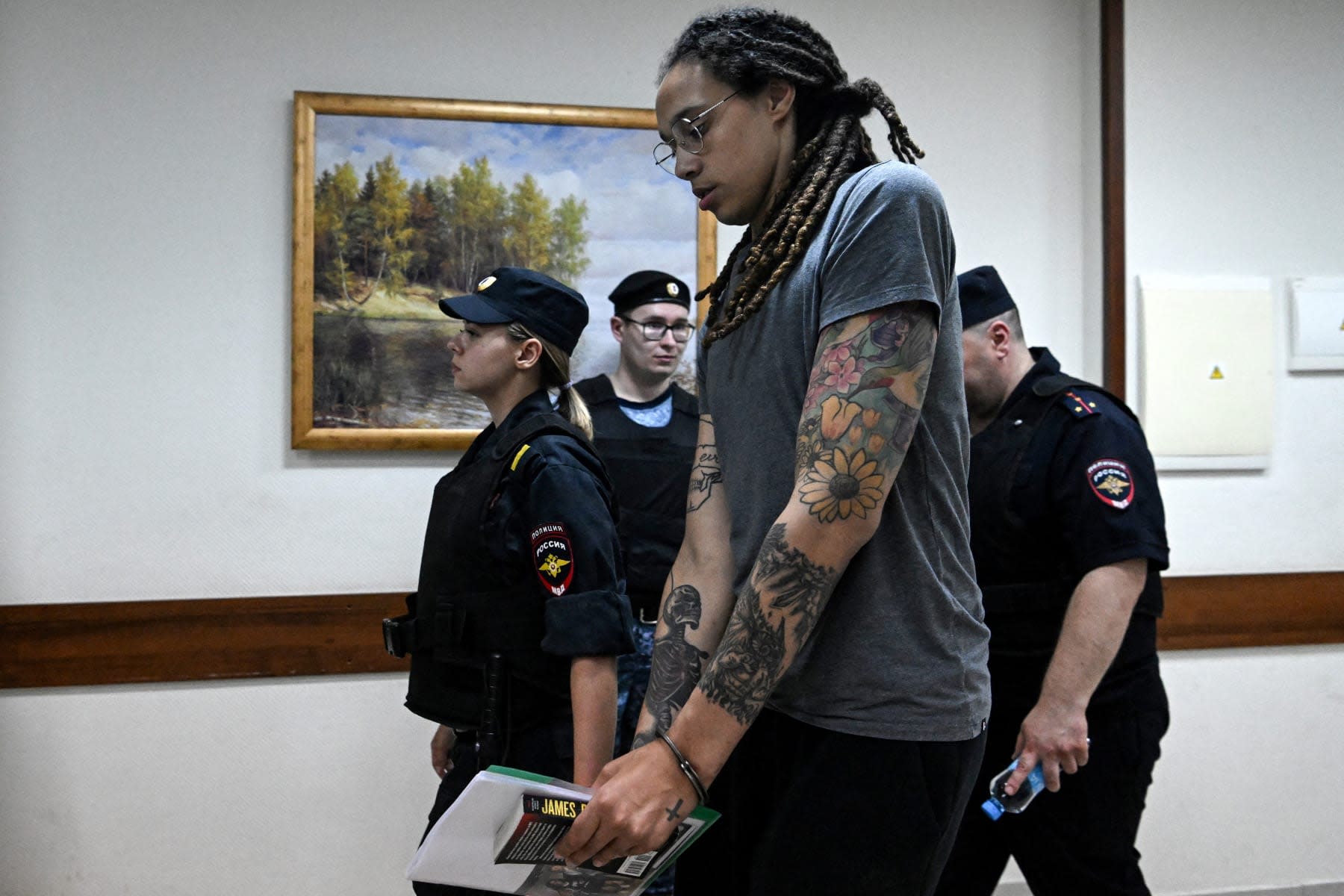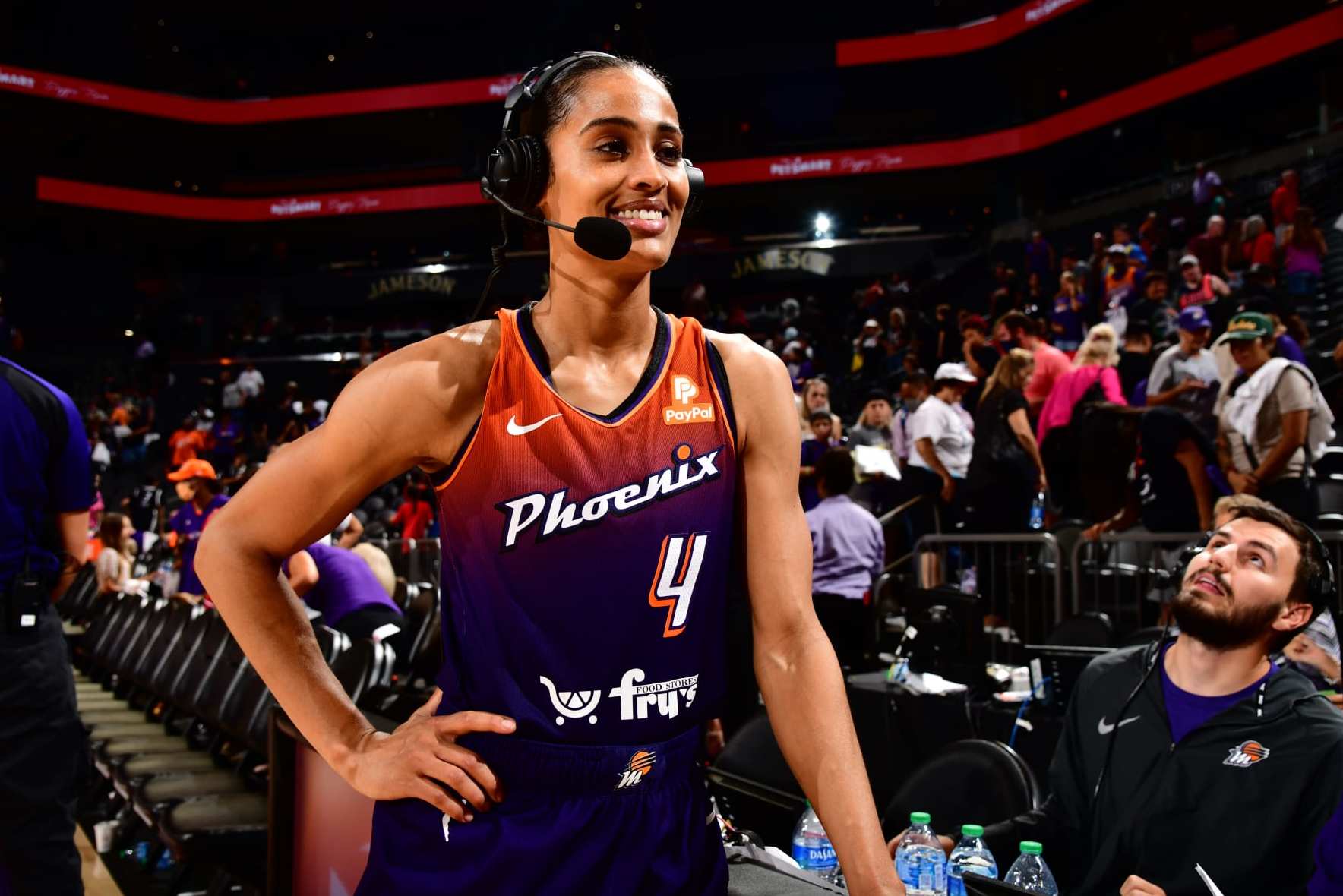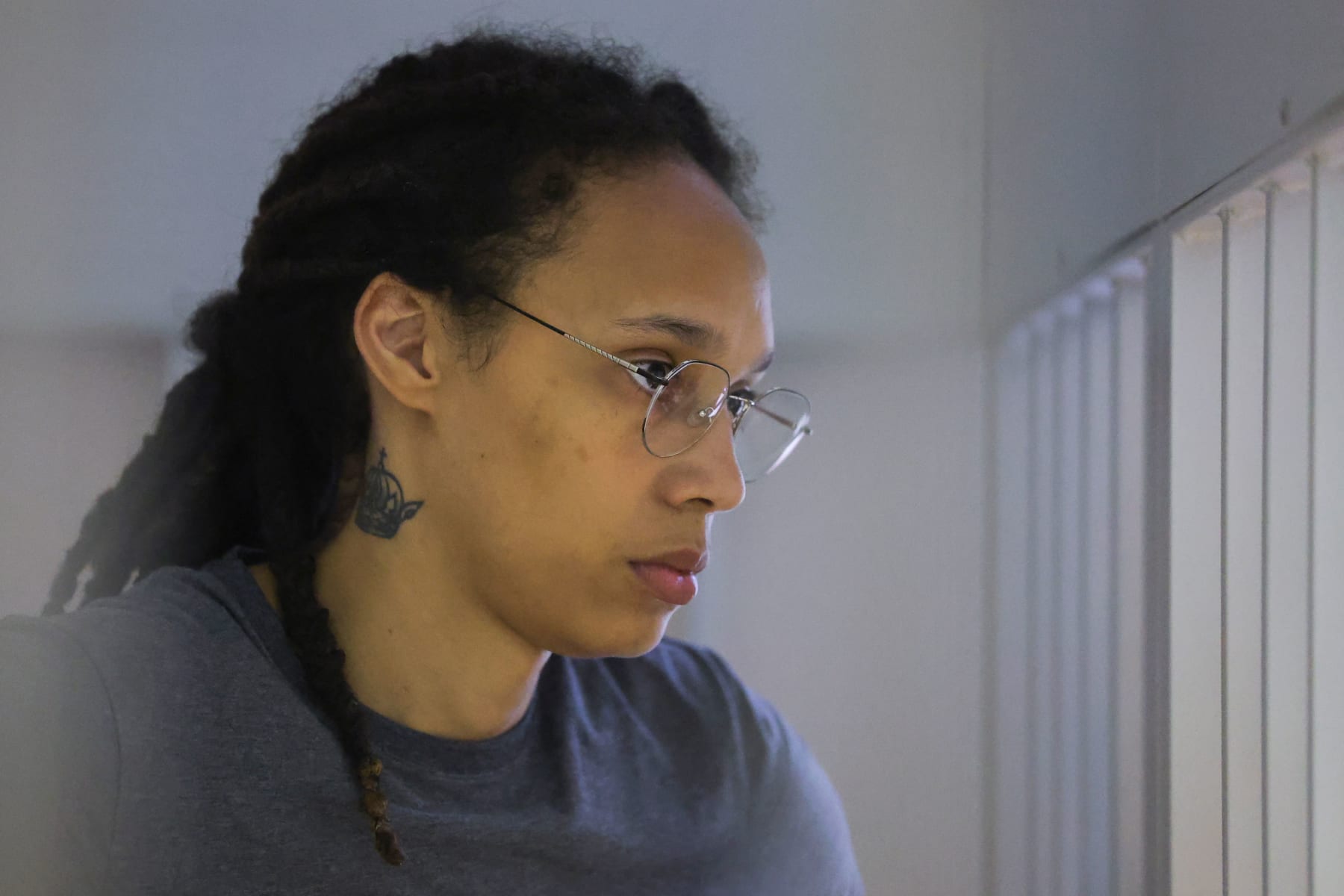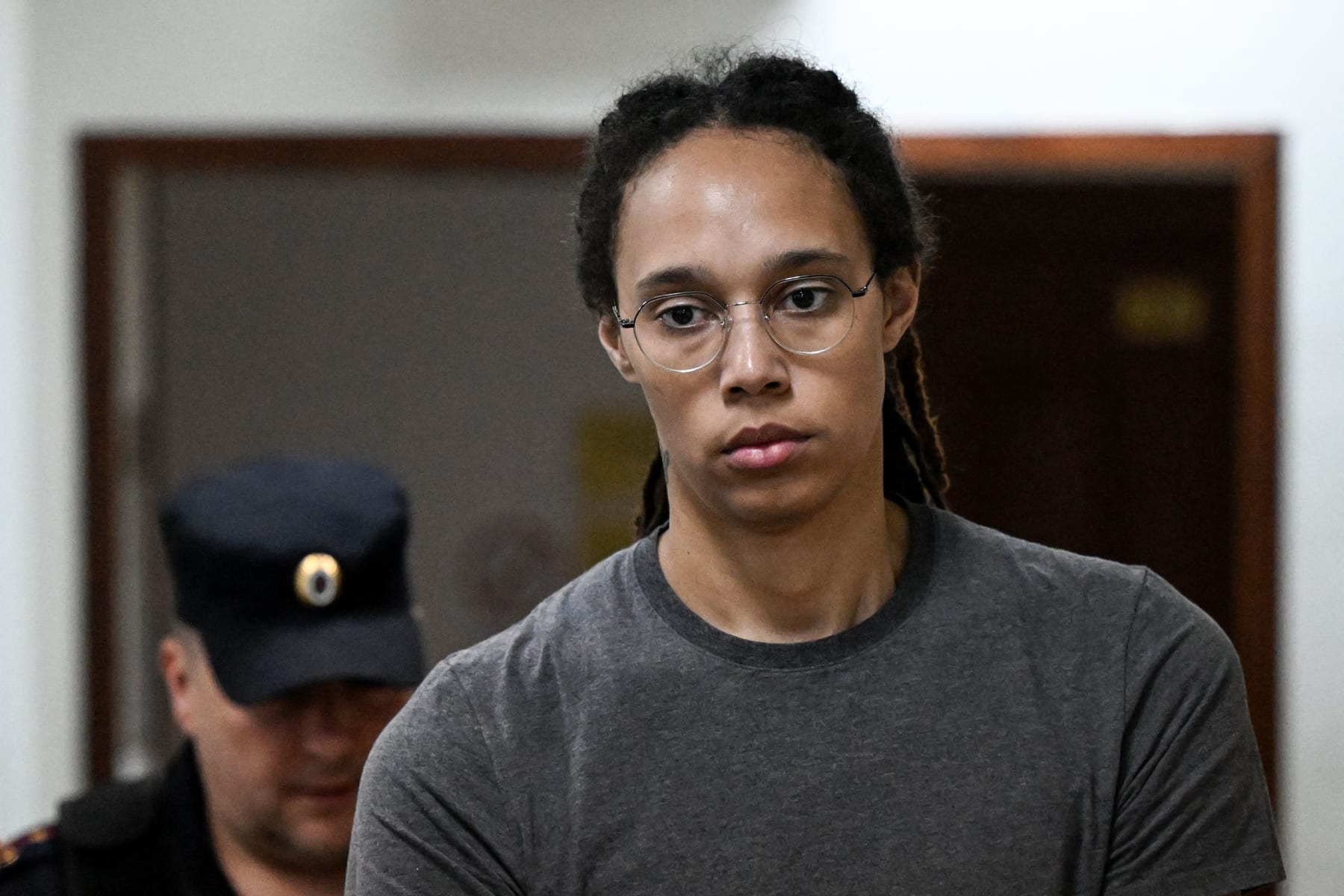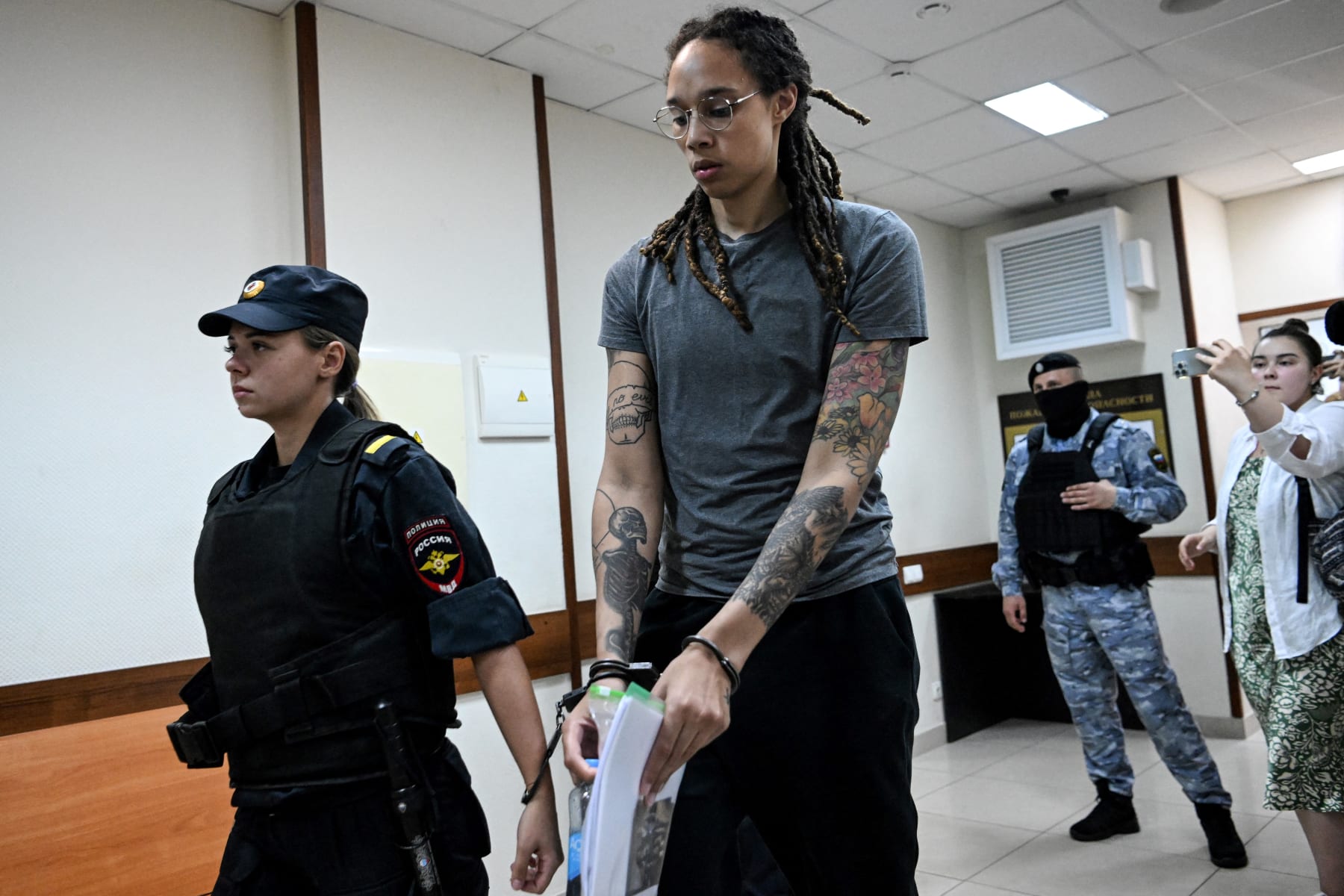Brittney Griner Released from Russia After US Deal; Was Detained on Drug Charge
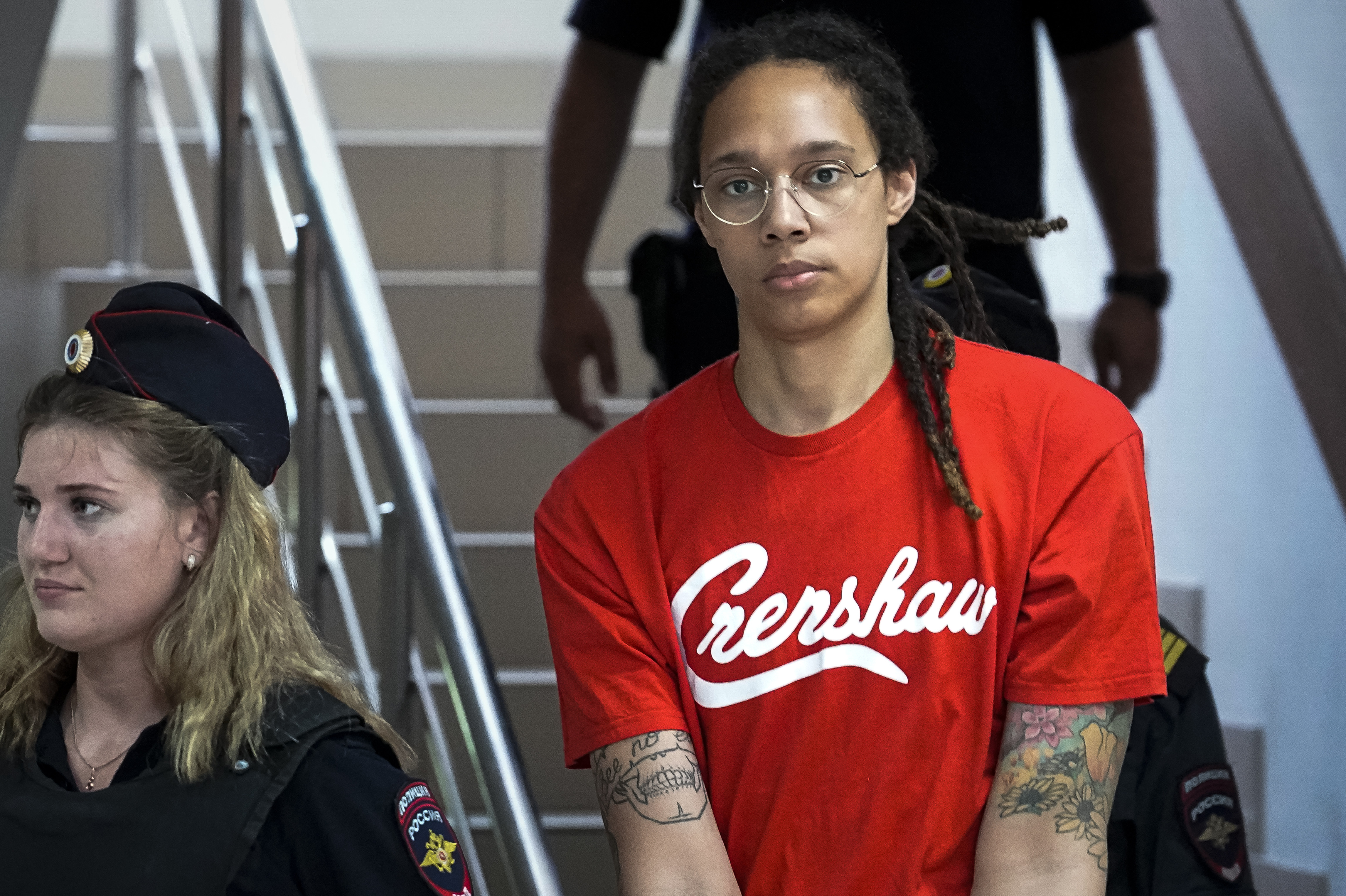
Phoenix Mercury star Brittney Griner is returning to the United States.
A United States official told CBS News Griner was released from a Russian prison on Thursday in a one-for-one prisoner swap for international arms dealer Viktor Bout.
President Joe Biden confirmed Griner's release on Twitter after the report:
CBS noted negotiations have been ongoing "in recent weeks," with Biden giving final approval within the last week.
"A White House official said President Biden was in the Oval Office Thursday morning on the phone, speaking with Griner and her wife, and that Vice President Kamala Harris was also in the room," according to CBS. "Per standard procedure for freed U.S. prisoners, Griner was expected to quickly undergo a medical evaluation."
A Russian court found her guilty of drug possession and smuggling on Aug. 4 and sentenced her to nine years in prison. ESPN's T.J. Quinn noted the length of the sentence might have been immaterial toward getting her back in the U.S.:
CNN's Kylie Atwood, Evan Perez and Jennifer Hansler reported on July 28 the Biden administration was prepared to exchange convicted arms trafficker Bout for Griner and Paul Whelan. Whelan is a former U.S. Marine who was sentenced to 16 years in prison in Russia on espionage charges in 2020.
For those who have been pushing Biden for Griner's release, it was seen as a potentially significant breakthrough.
However, CNN's Natasha Bertrand and Frederik Pleitgen reported on Aug. 1 that Russian officials countered by requesting convicted murderer Vadim Krasikov to be included in the prisoner swap.
Press Secretary Karine Jean-Pierre said at a press briefing on Aug. 1 that Russia wasn't negotiating in good faith and didn't provide "a serious counteroffer." John Kirby, the spokesman for the U.S. National Security Council echoed that sentiment at a press briefing the following day.
"Obviously, we’re not going to negotiate this thing in public," he said. "And I do appreciate the question, but we...look, we’ve made a serious proposal, made a serious offer. And we urge the Russians to take that offer, because it was done with sincerity and...and we know we can back it up."
By November, State Department spokesman Ned Price confirmed officials from the U.S. embassy had met with Griner, though there didn't appear to be much progress toward securing her release.
Griner was arrested in February at a Moscow airport for allegedly carrying vape cartridges containing cannabis oil in her luggage. News of her arrest didn't reach the United States until early March.
In March, Quinn and Mechelle Voepel interviewed Tom Firestone, a former legal adviser for the U.S. embassy. Firestone said Griner's detention could quickly take on political implications, at which point "the Russian government may dig into their position."
As a result, those close to the seven-time WNBA All-Star were careful to avoid drawing too much attention to the story in the hope it could be resolved quietly behind the scenes.
Public outcry began to grow over the ensuing weeks with little to no progress made, though. By early May, the U.S. State Department classified Griner as "wrongfully detained," which allowed government officials to begin formally working toward her release.
On July 7, Griner pleaded guilty to drug charges.
Quinn reported the plea "was a strategy to help facilitate a prisoner swap that could bring Griner home, and it also was a recognition that there was no way she was going to be acquitted."
Quinn added that the case could extend for weeks or possibly months even after Griner pleaded guilty.
Russian Deputy Foreign Minister Sergei Ryabkov was critical of how the U.S. government was handling the matter, telling reporters that "attempts by the American side to make noise in public ... don’t help the practical settlement of issues."
Ryabkov also said labeling Griner as wrongfully detained "makes it difficult to engage in detailed discussion of any possible exchanges."
"The persistence with which the U.S. administration ... describes those who were handed prison sentences for serious criminal articles and those who are awaiting the end of investigation and court verdicts as ‘wrongfully detained’ reflects Washington’s refusal to have a sober view of the outside world," he said.
Griner, the No. 1 overall pick in the 2013 WNBA draft, has played nine years in the WNBA. In addition to her multiple All-Star nods, the 31-year-old is a two-time Defensive Player of the Year and was selected on the WNBA's 25th anniversary team. In 2014, she helped the Mercury win their third WNBA title.
Griner was in Russia because playing overseas has traditionally been a way for WNBA players to supplement their income. Overseas teams are often willing to pay significantly more than their WNBA counterparts.
Last October, Griner lamented how competing in Europe and playing year-round was "getting harder and harder," adding she was "not looking forward to it, honestly, having to leave my family."

